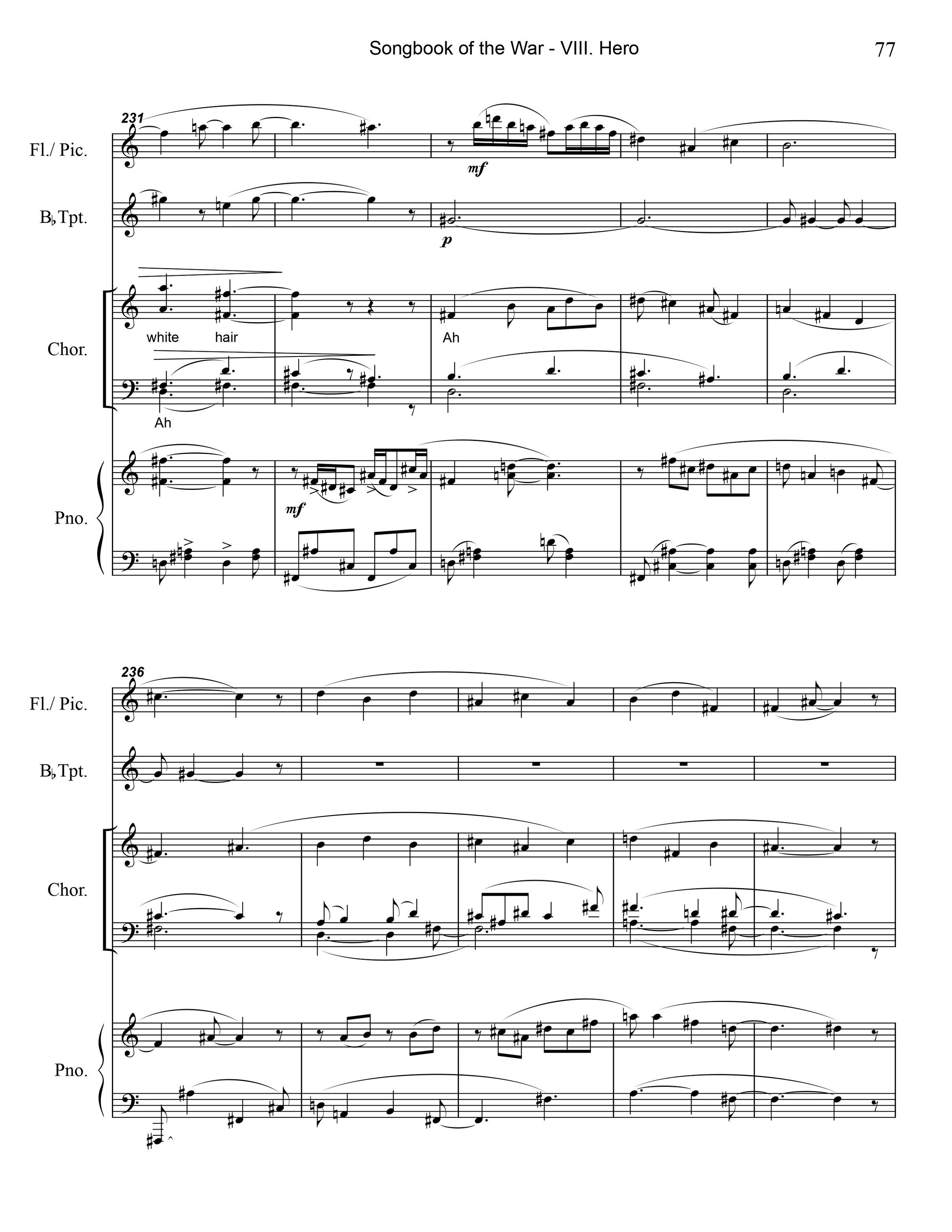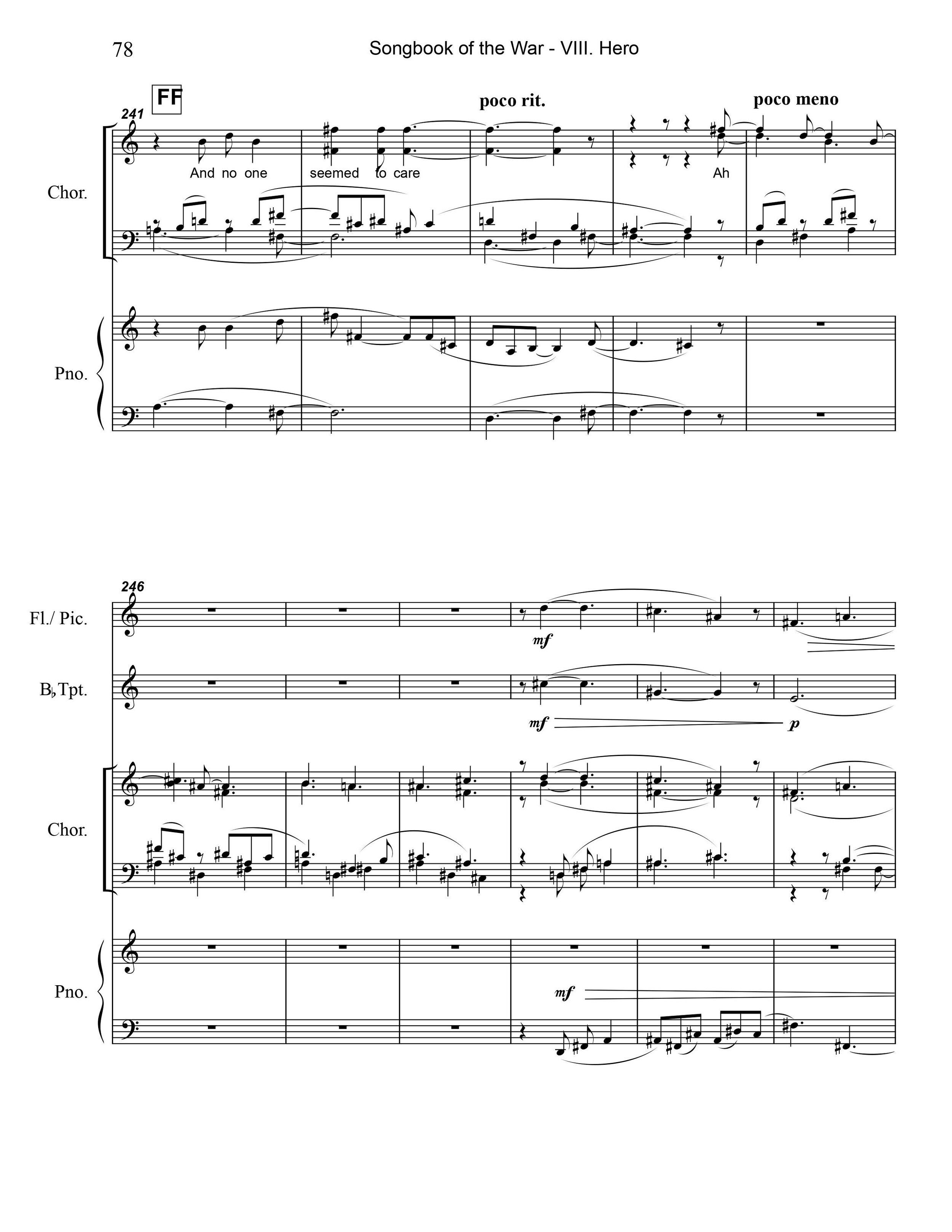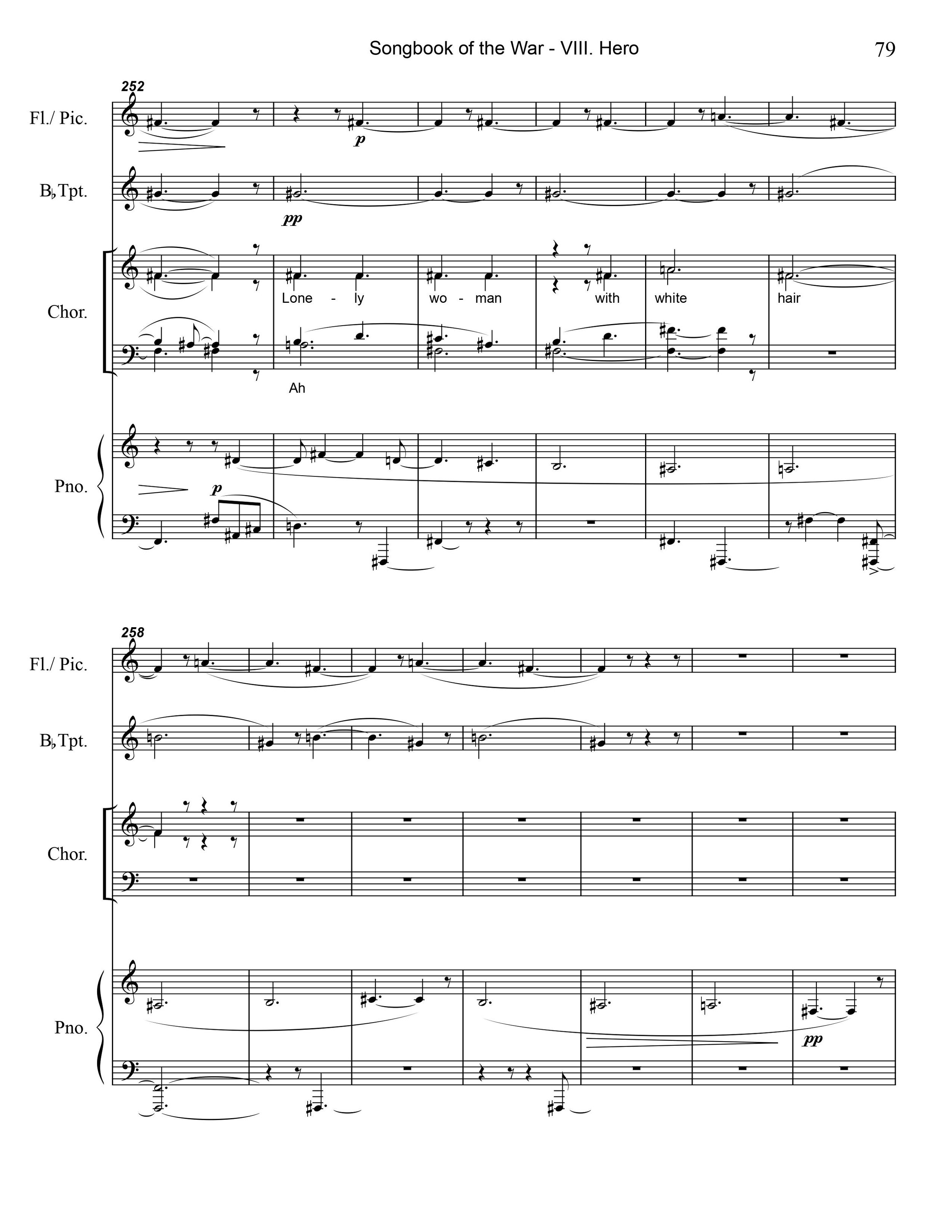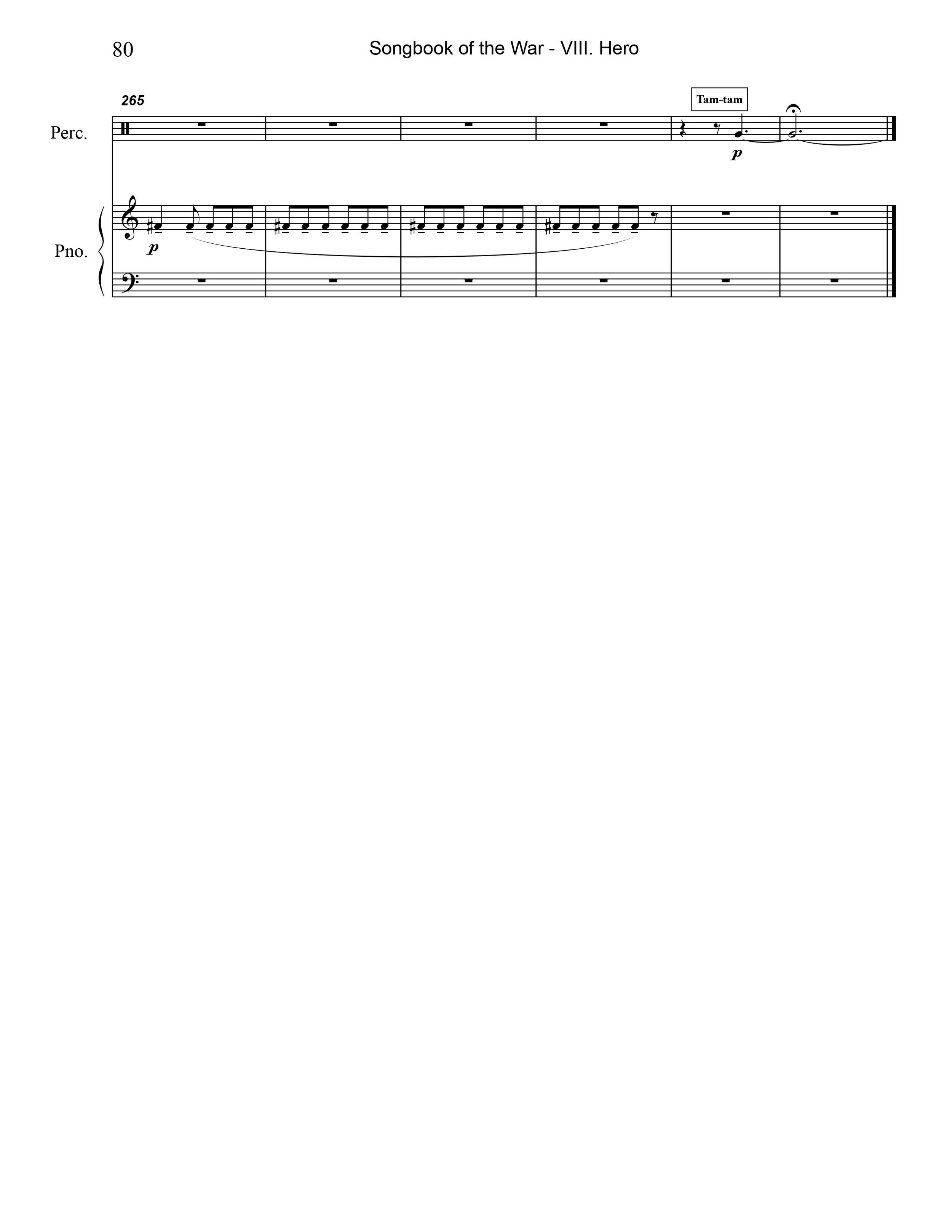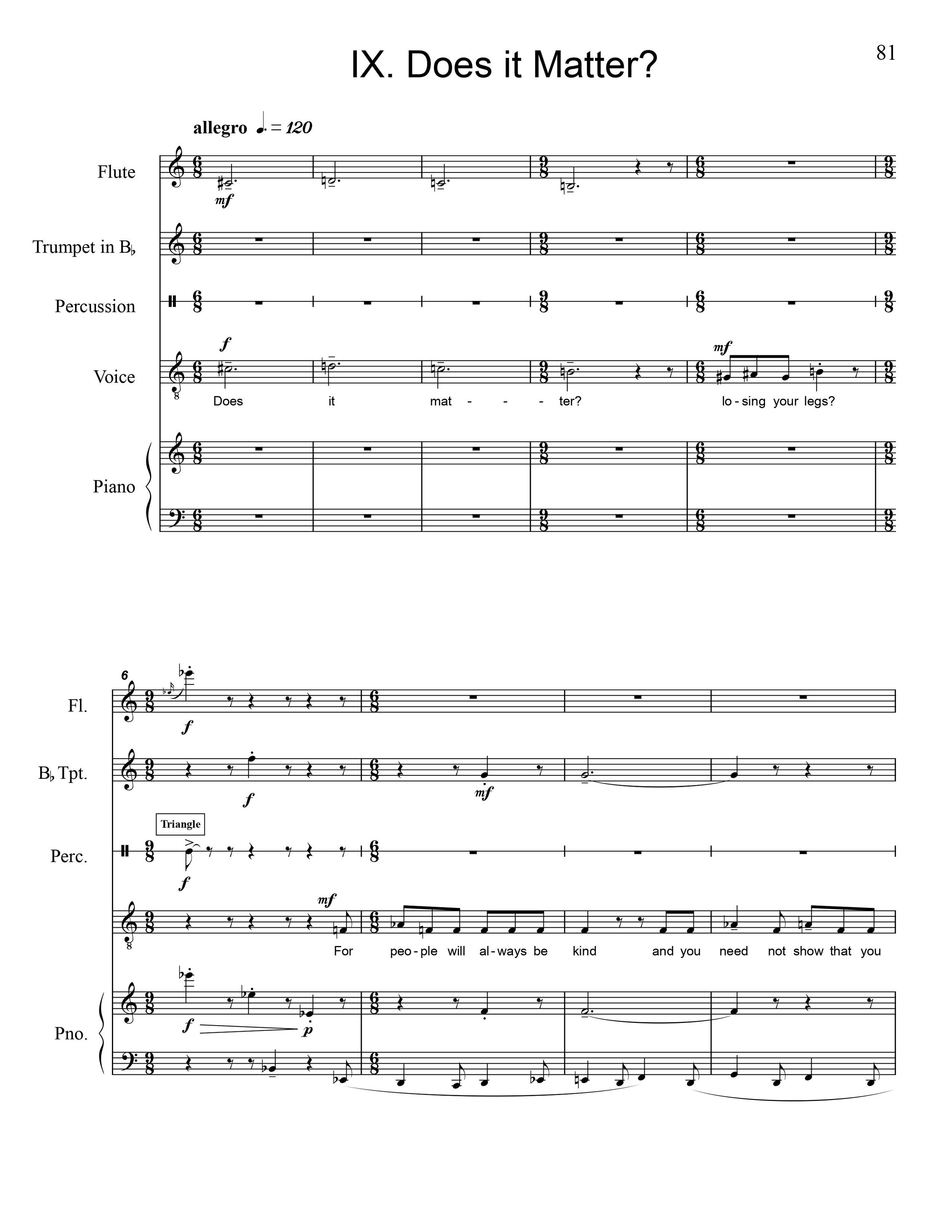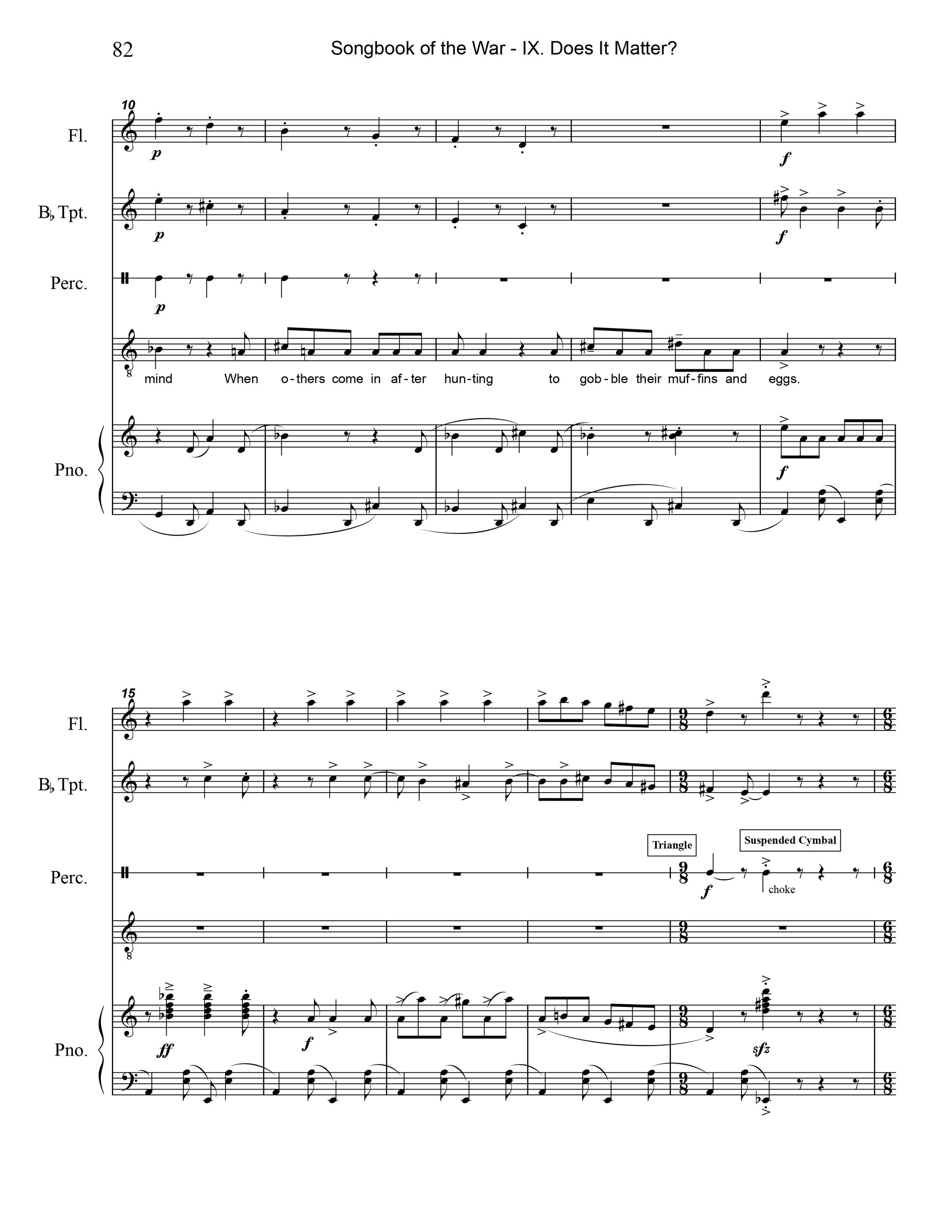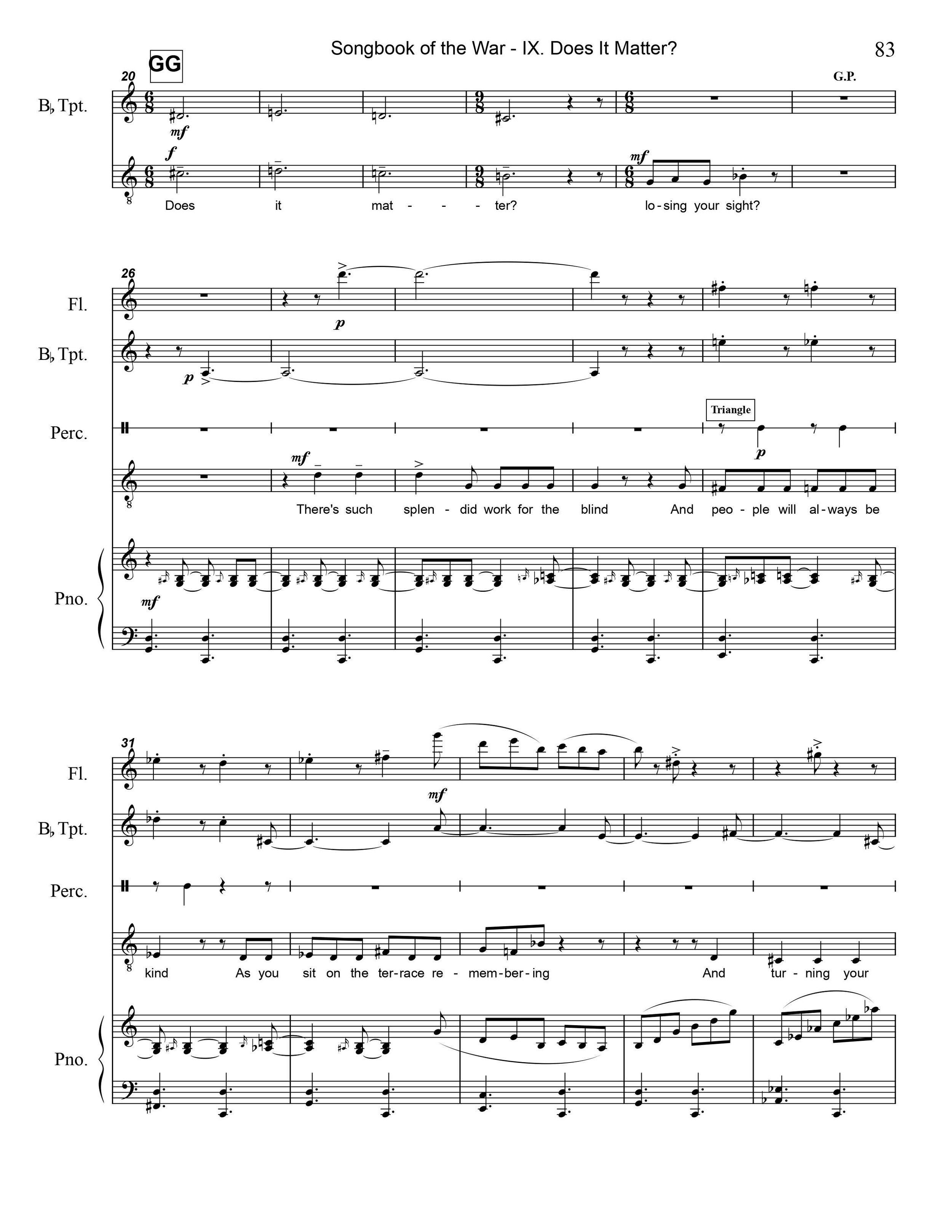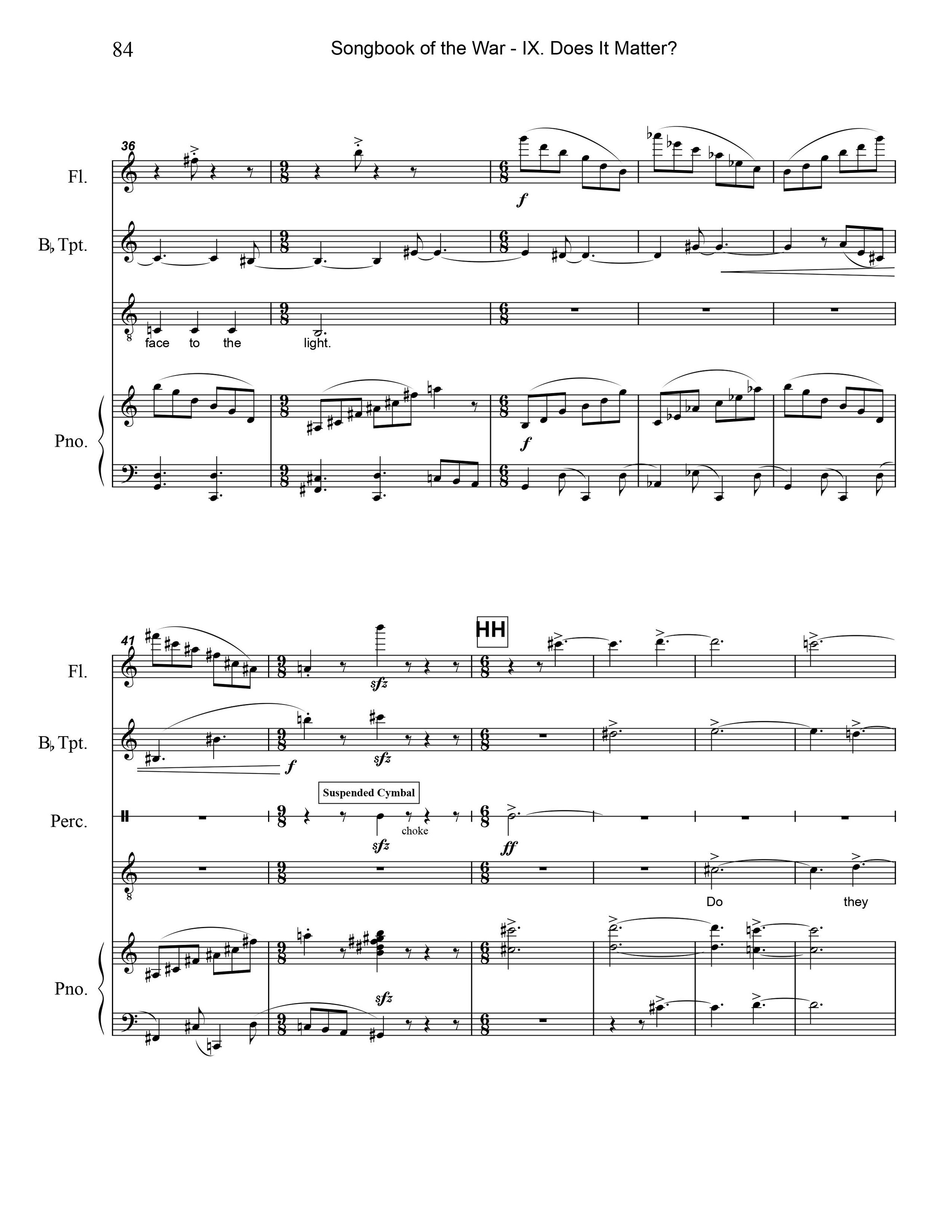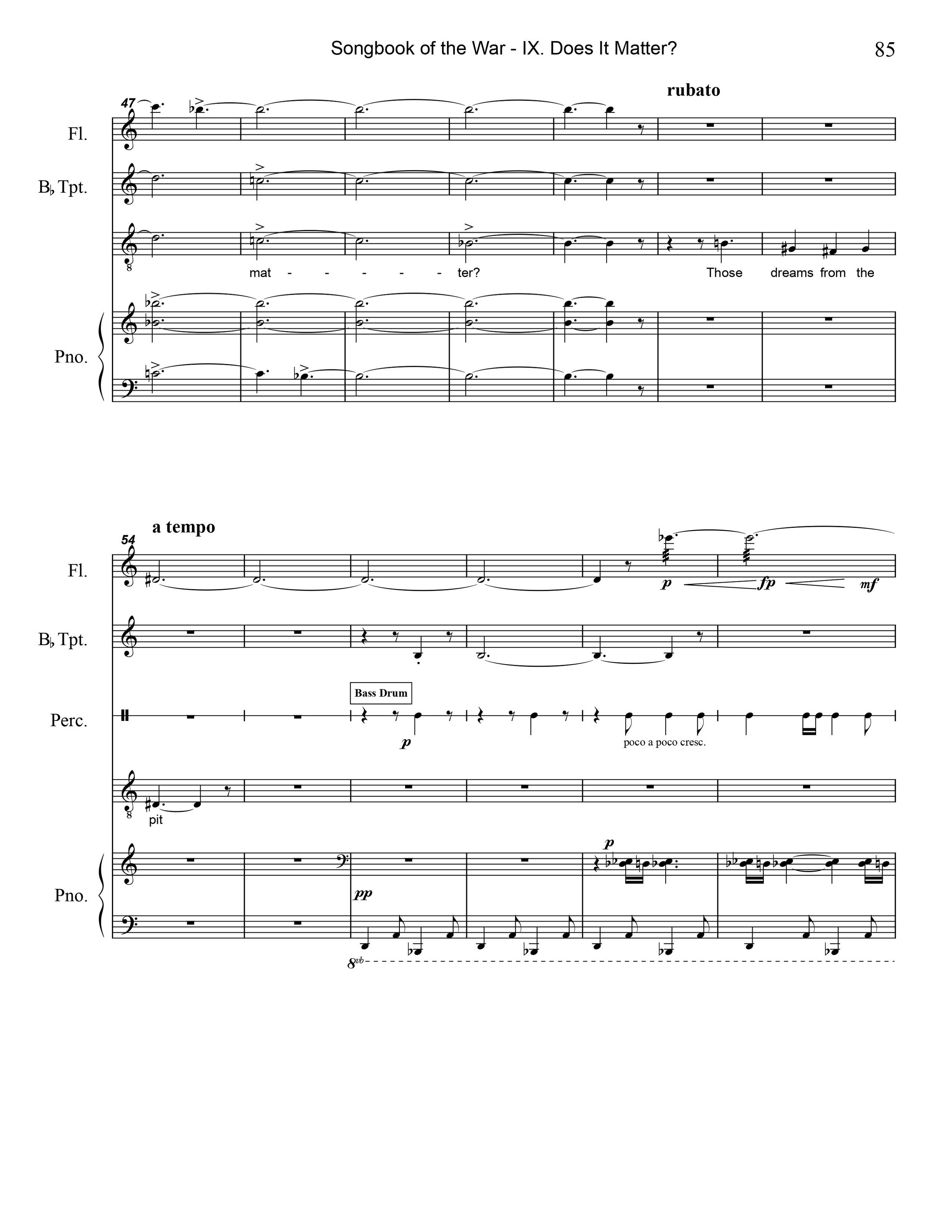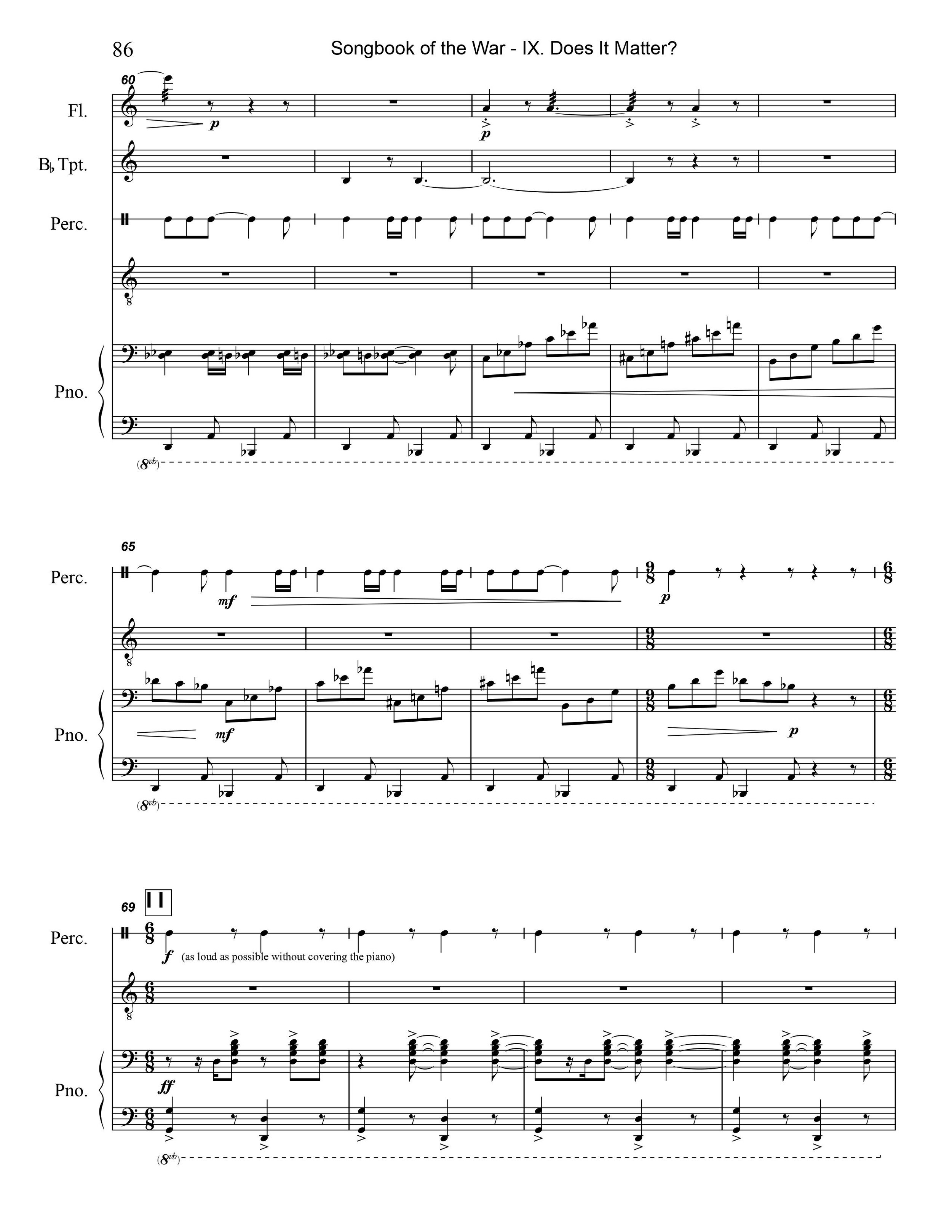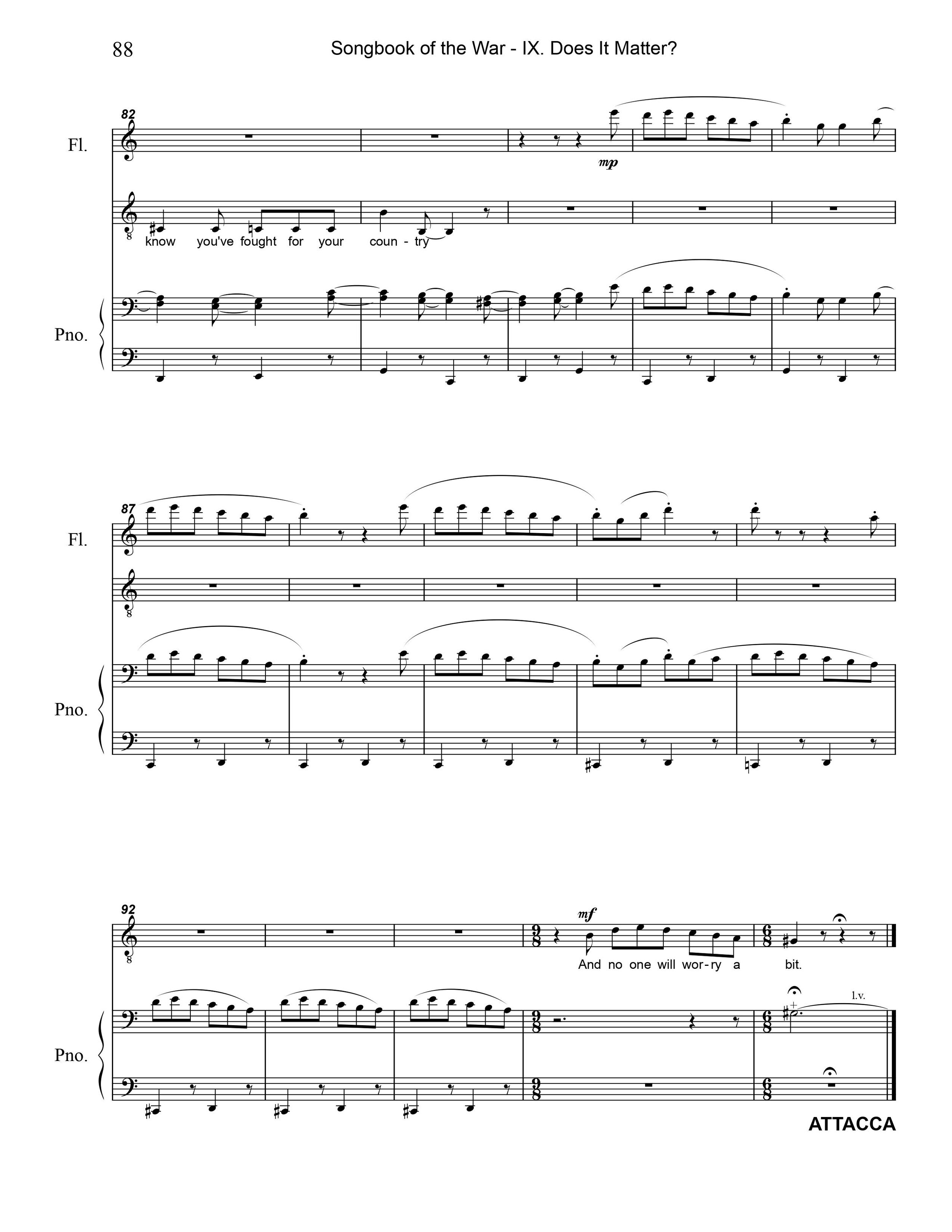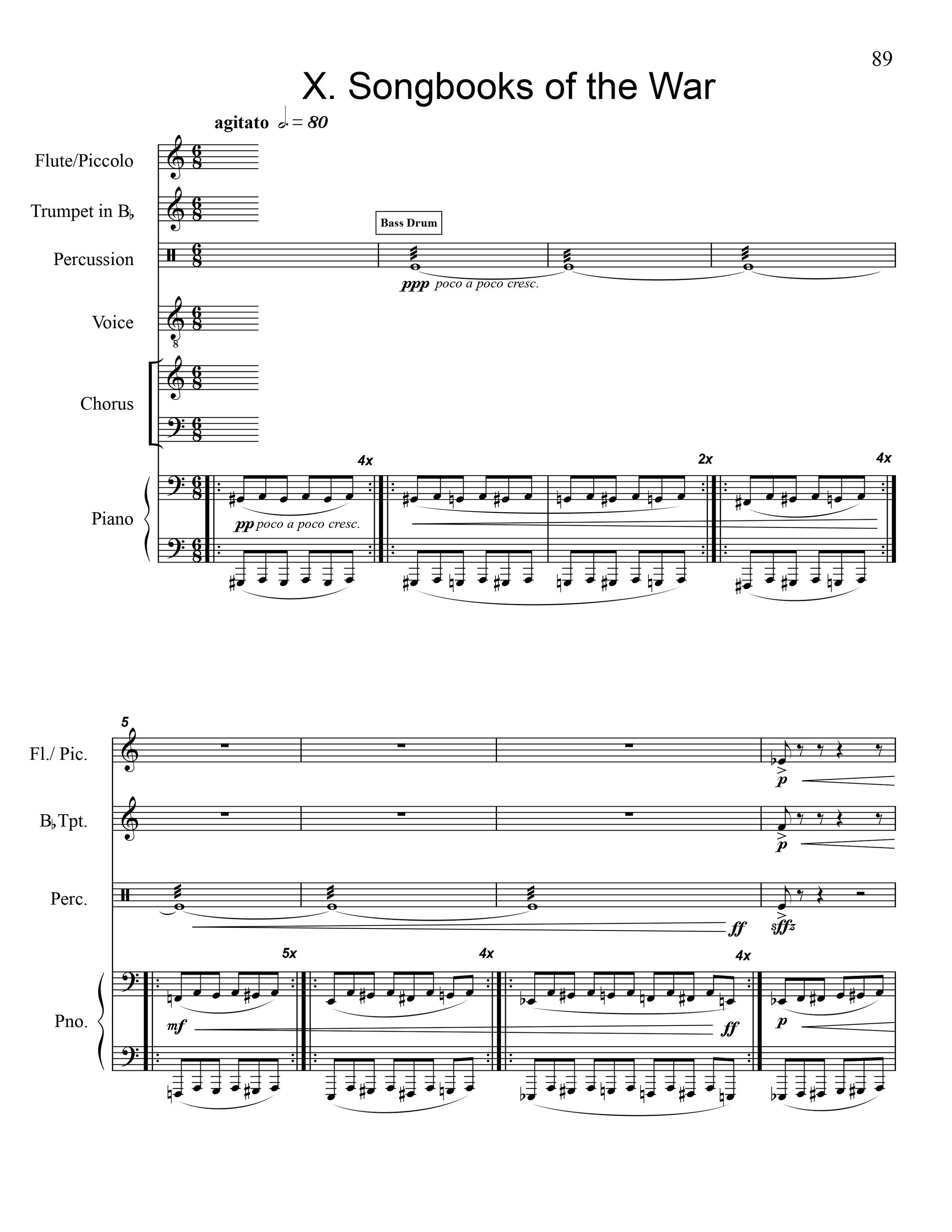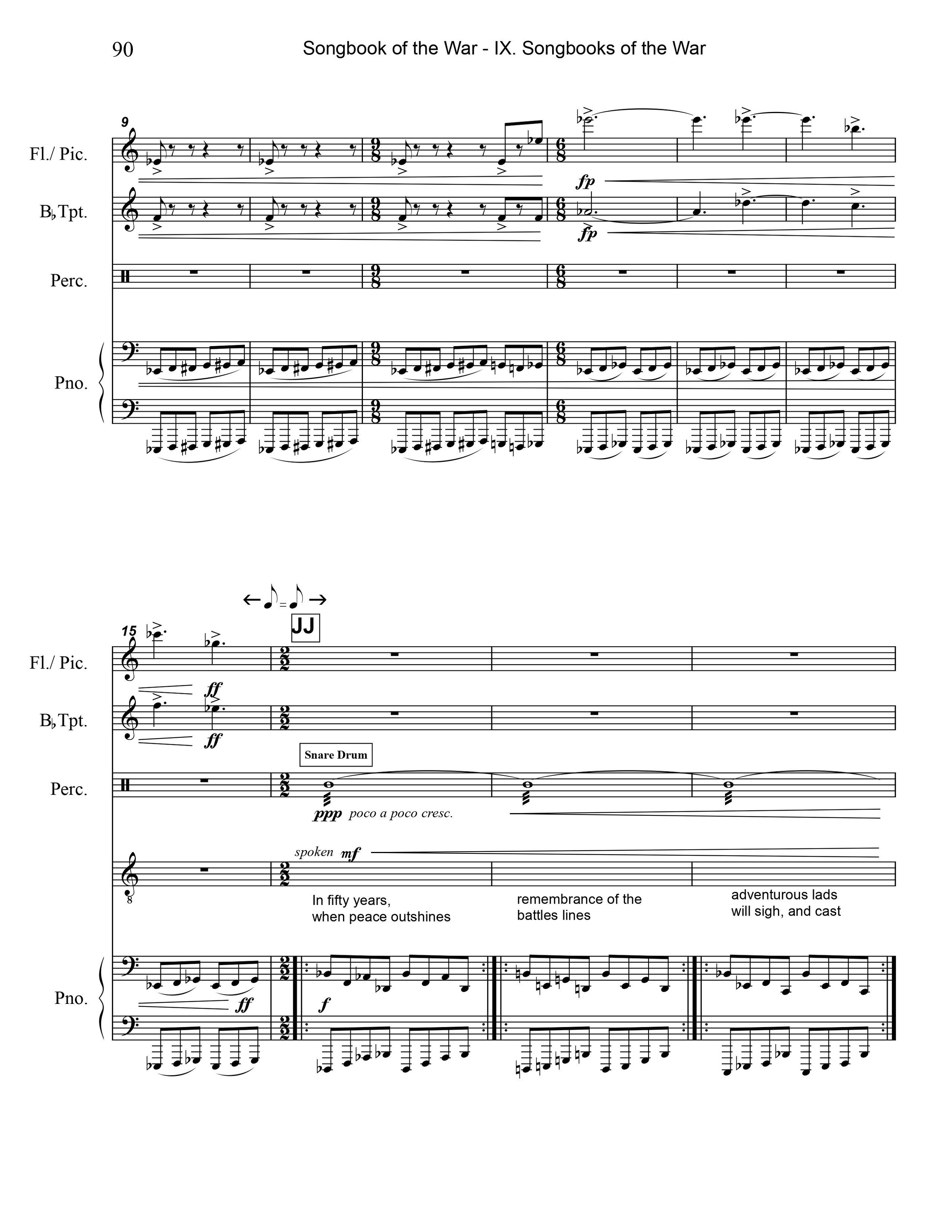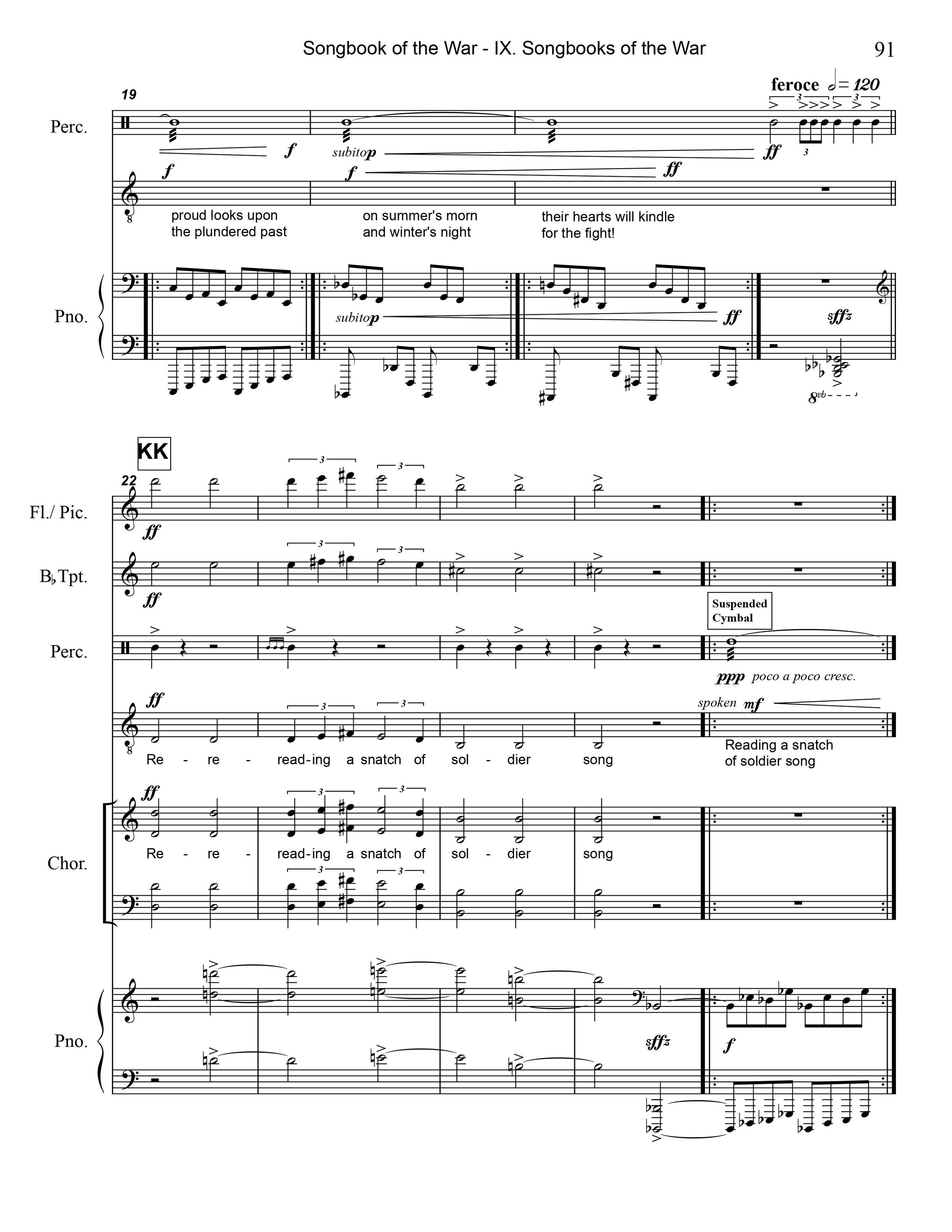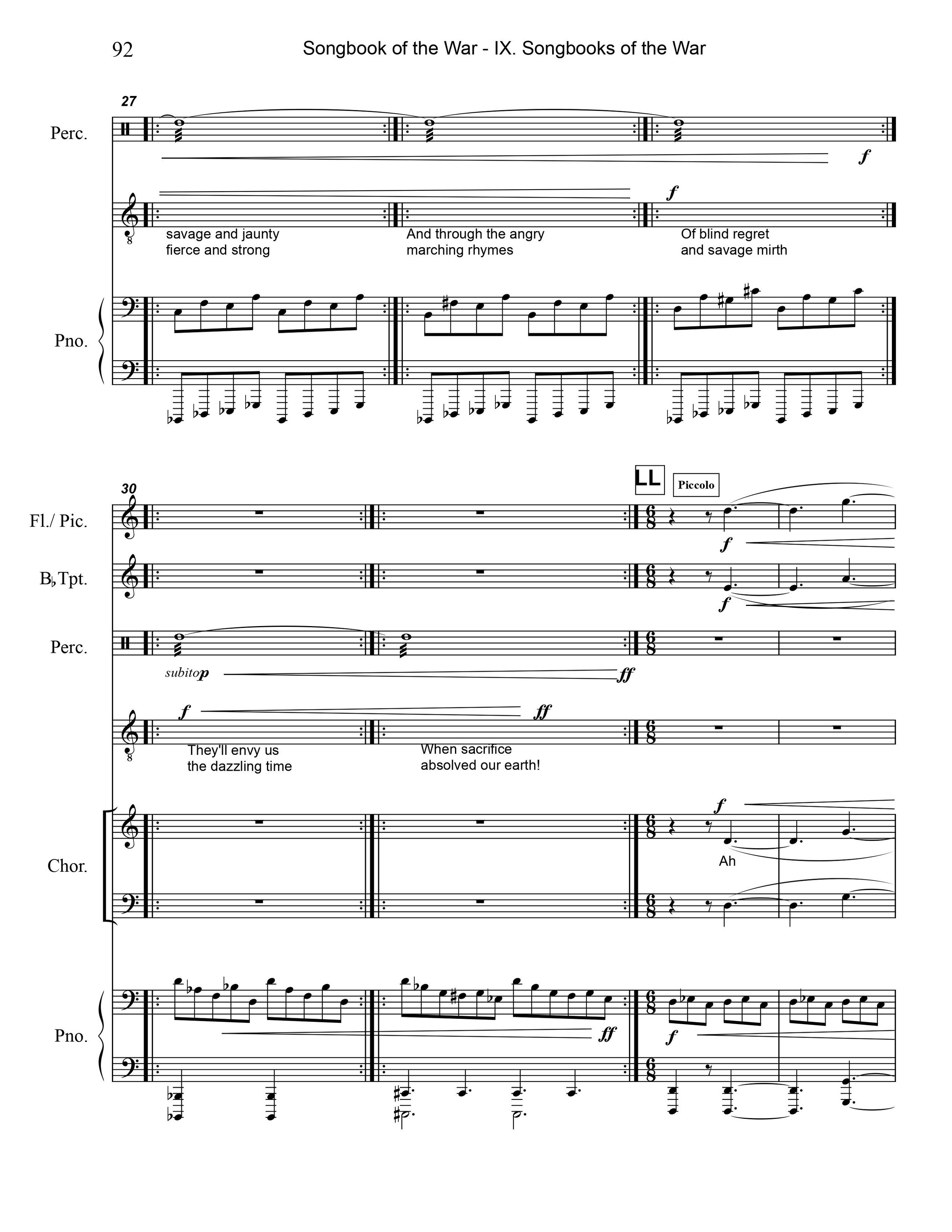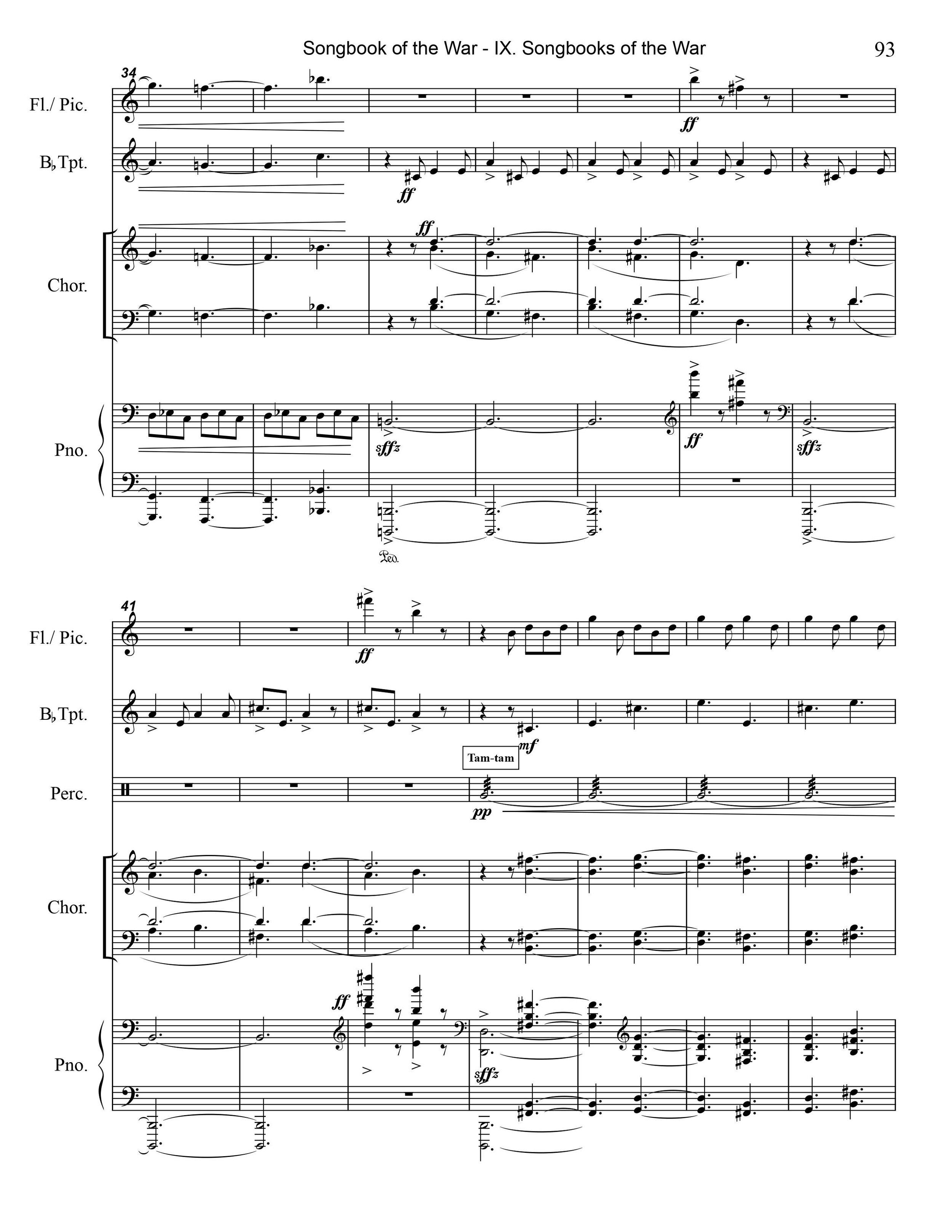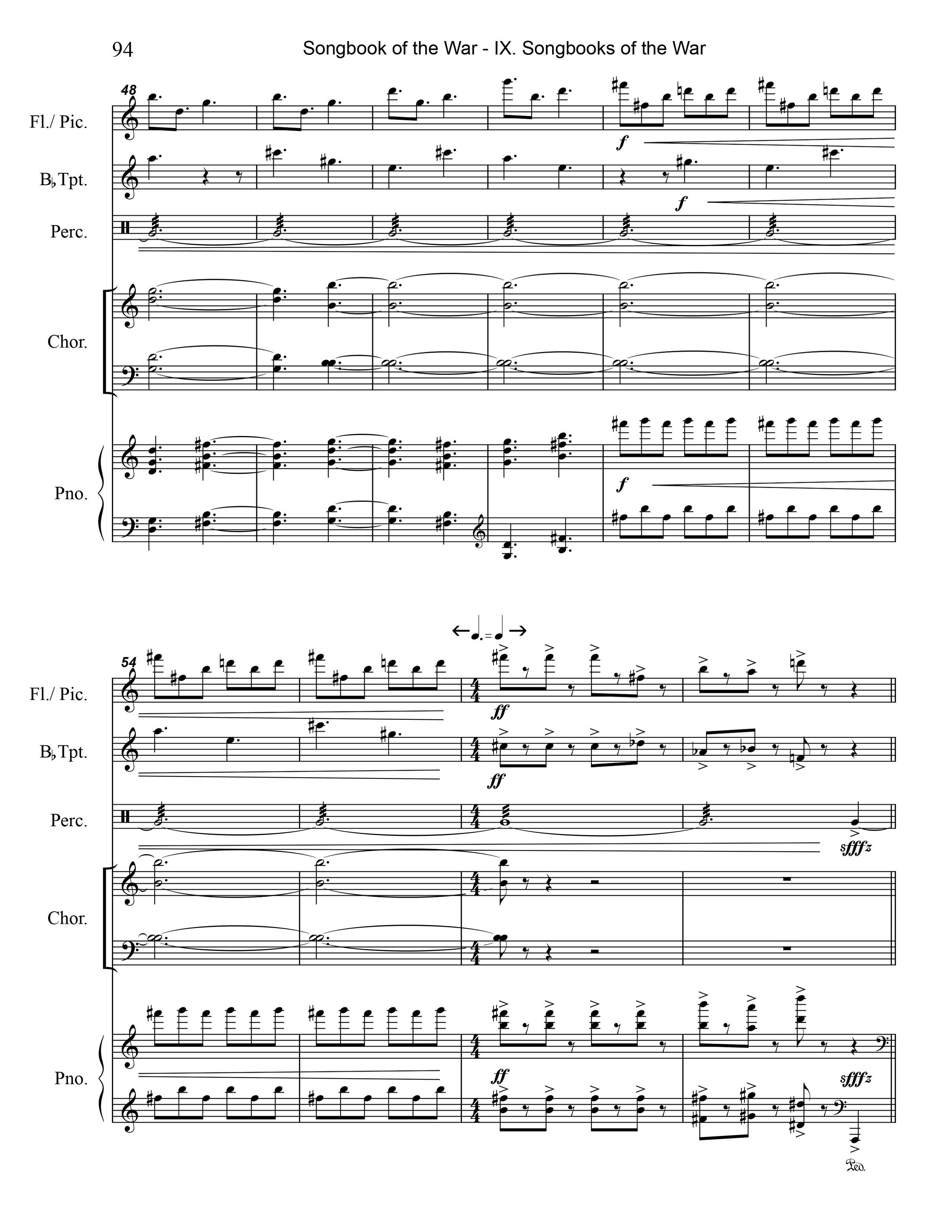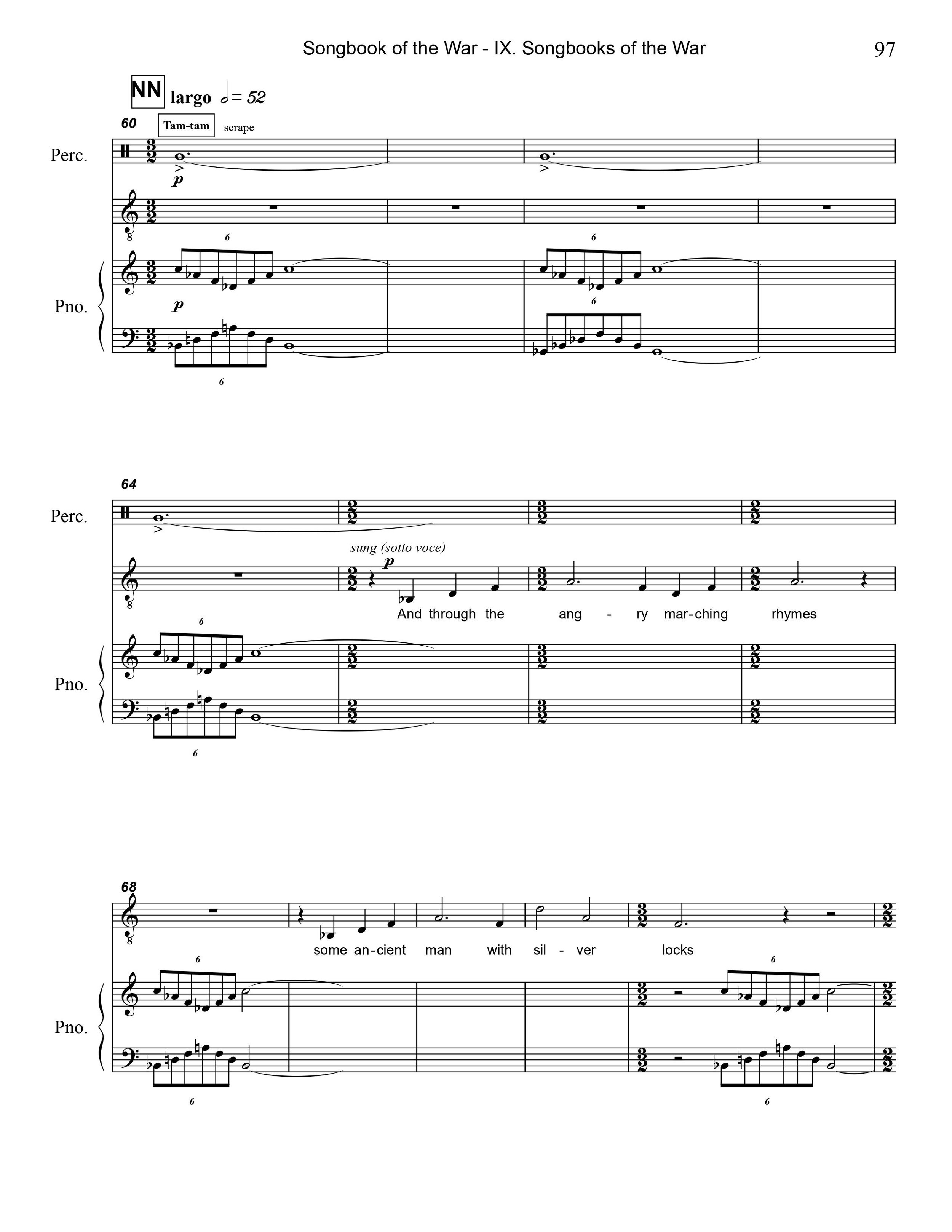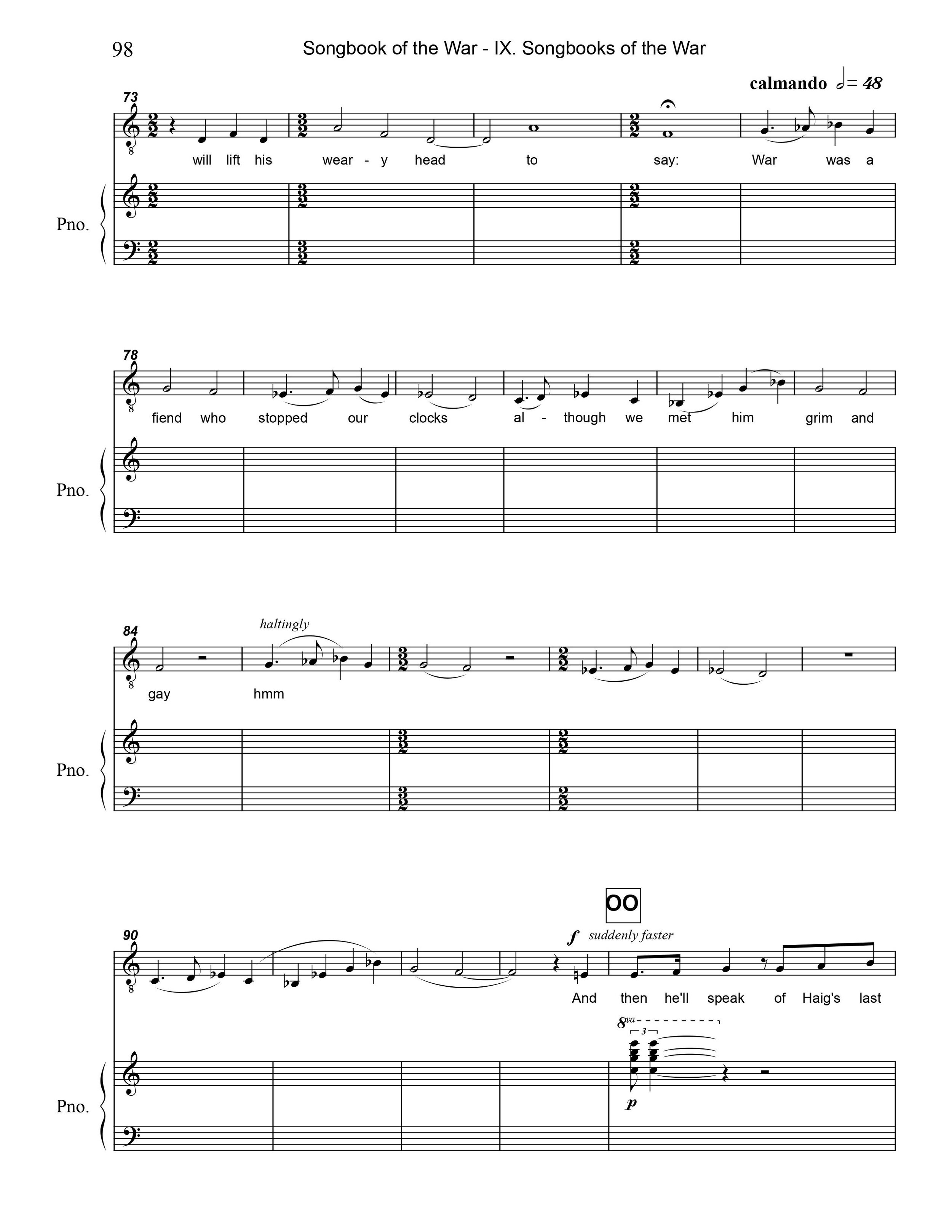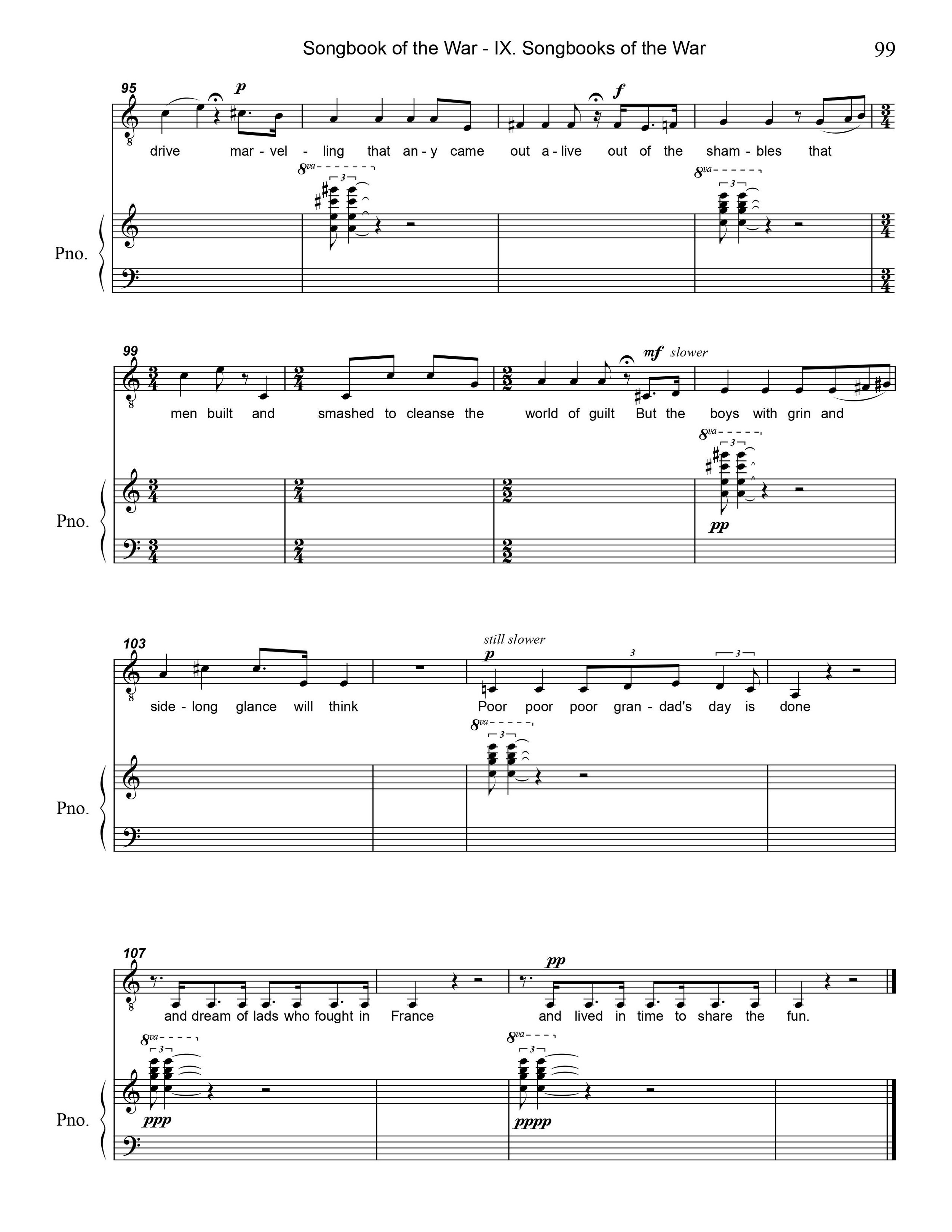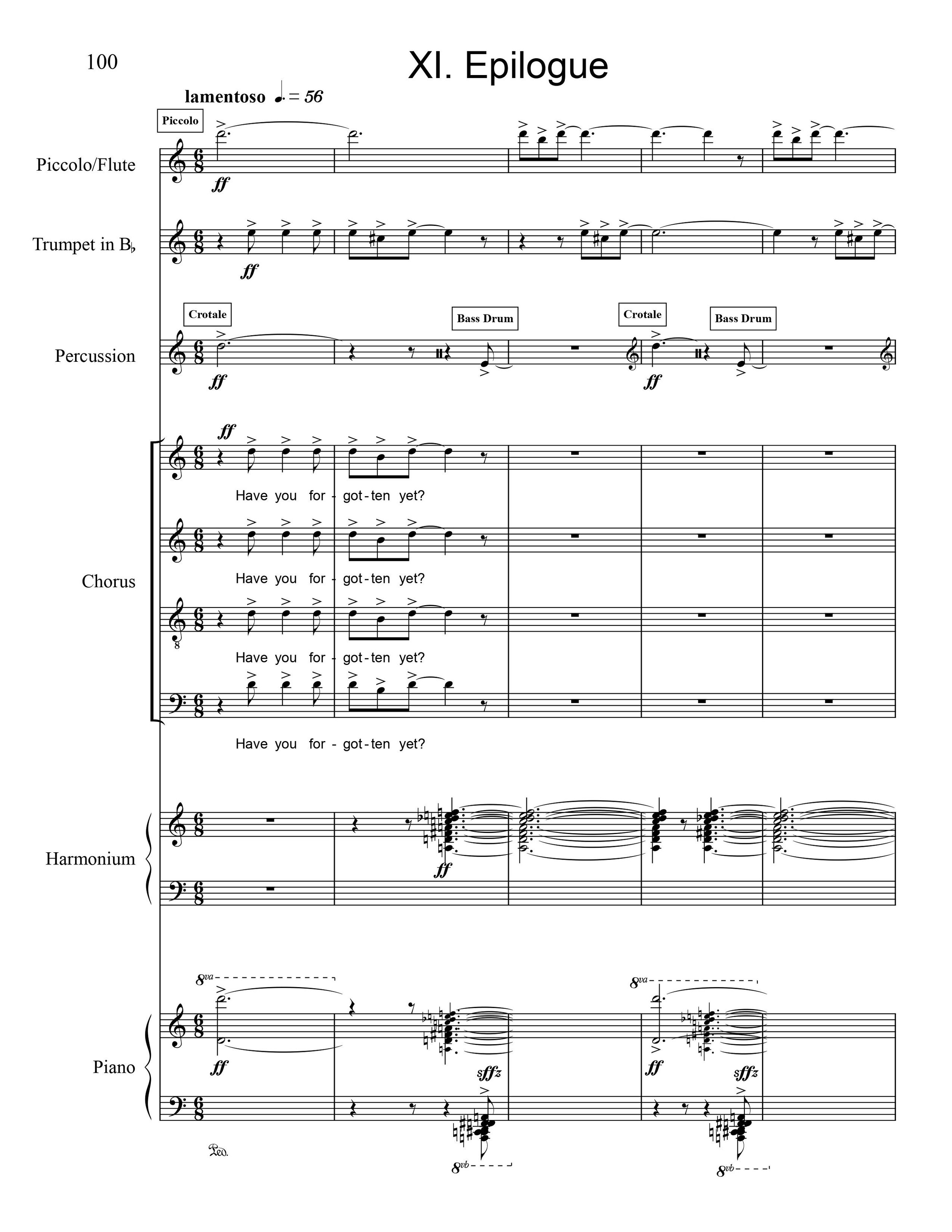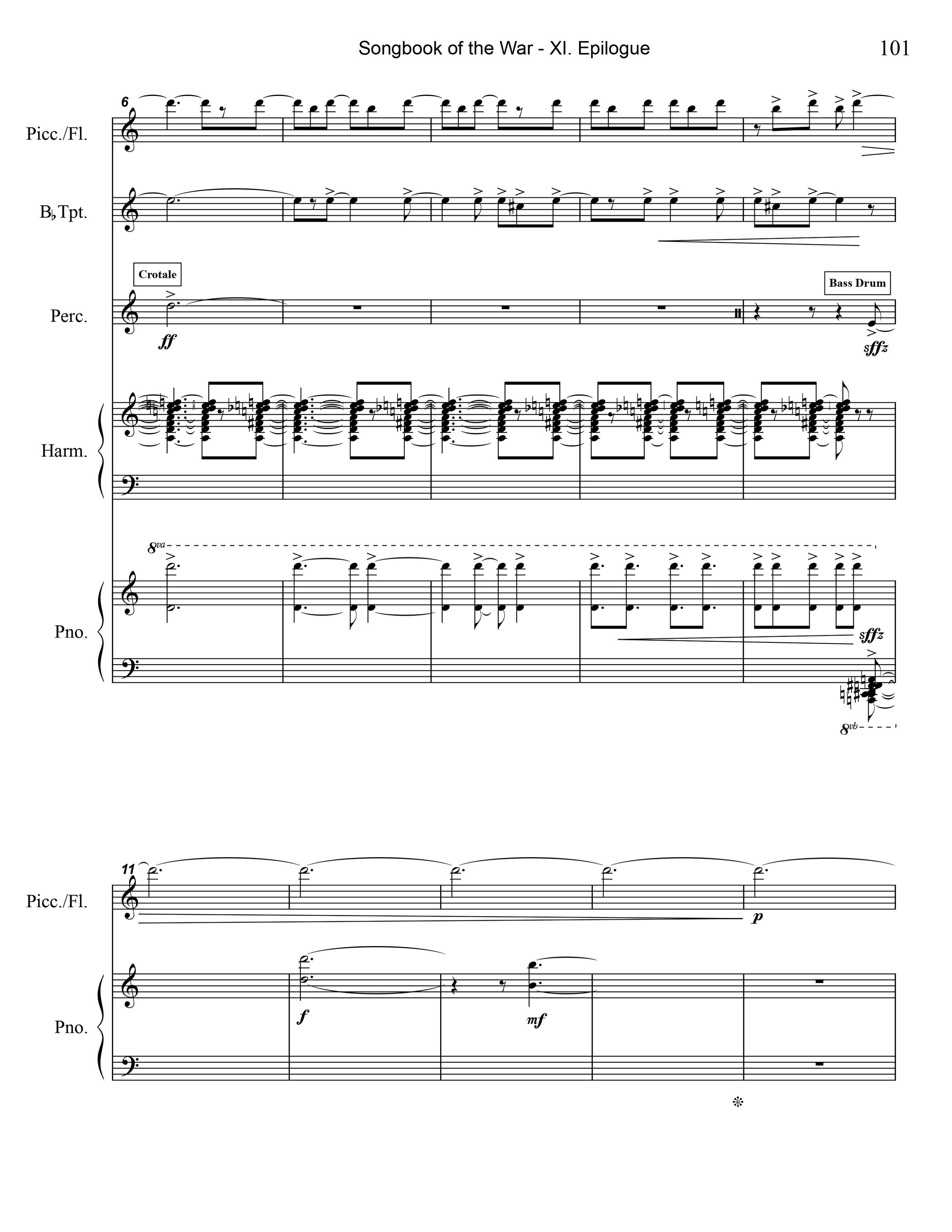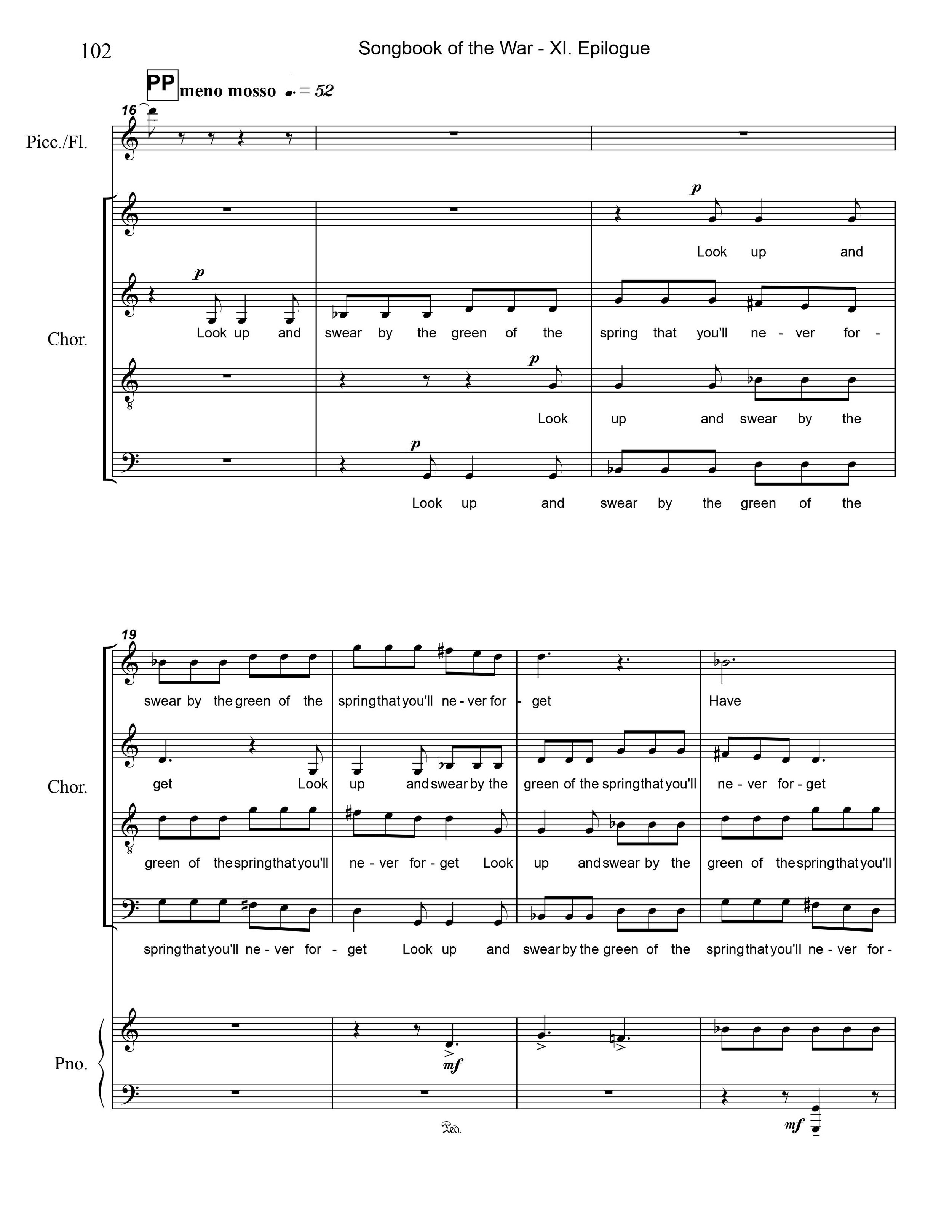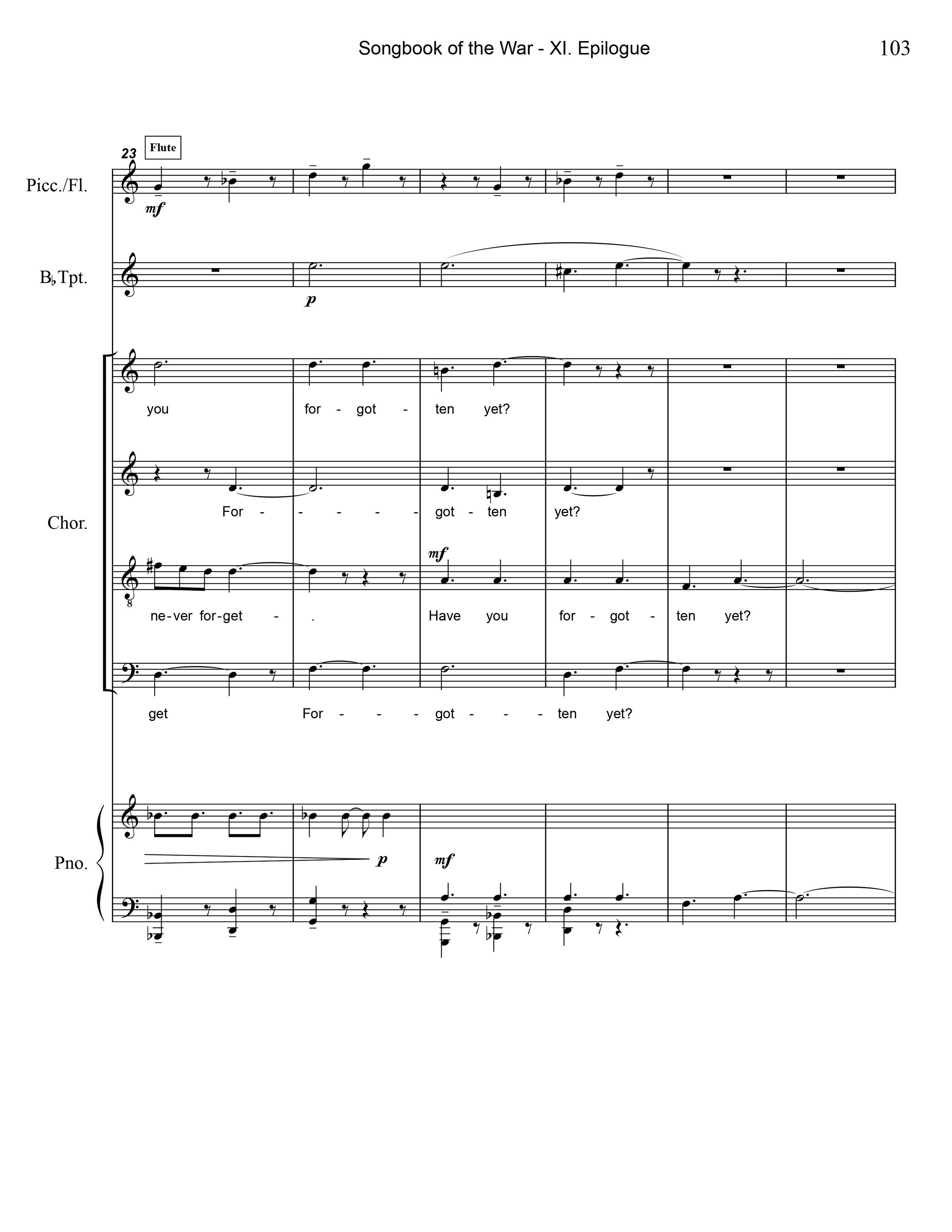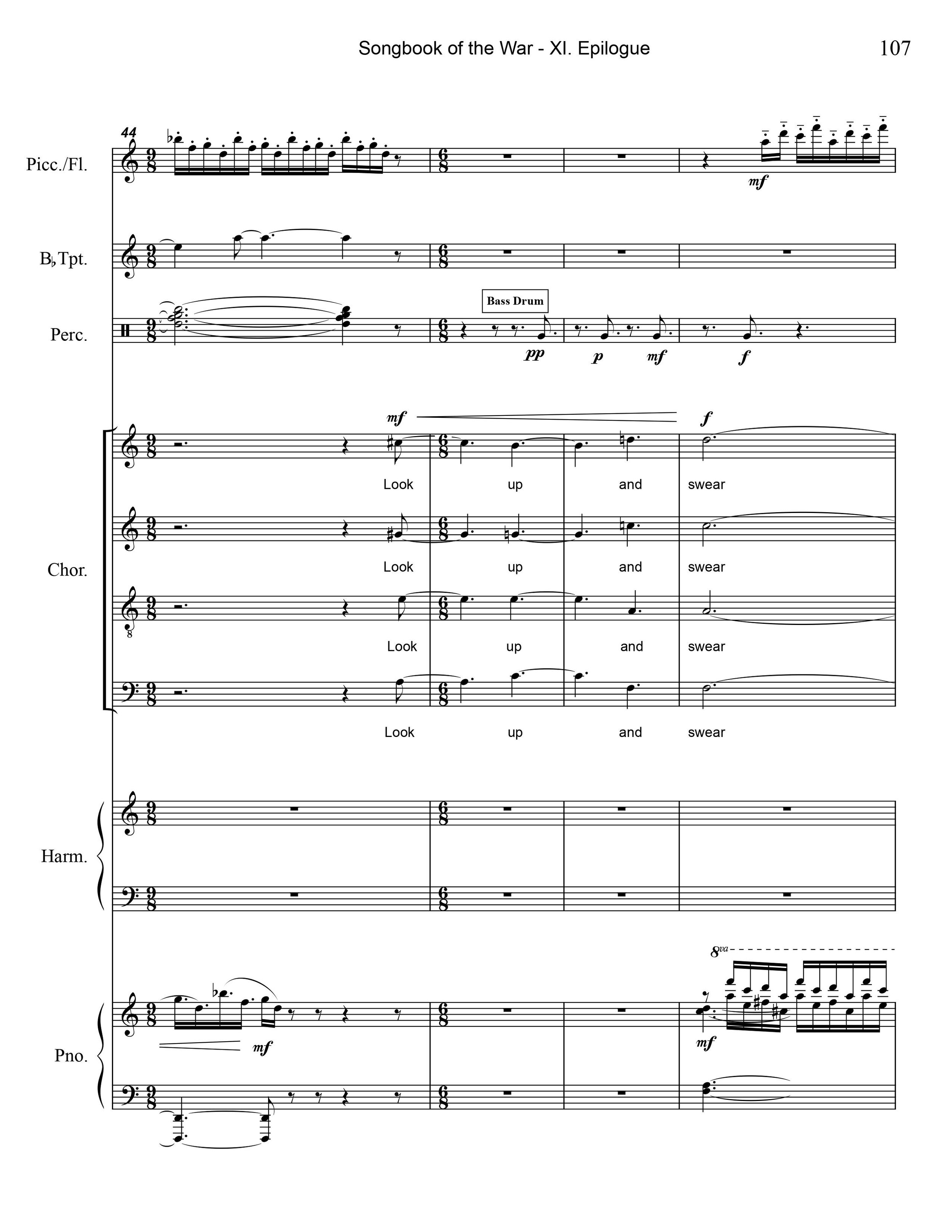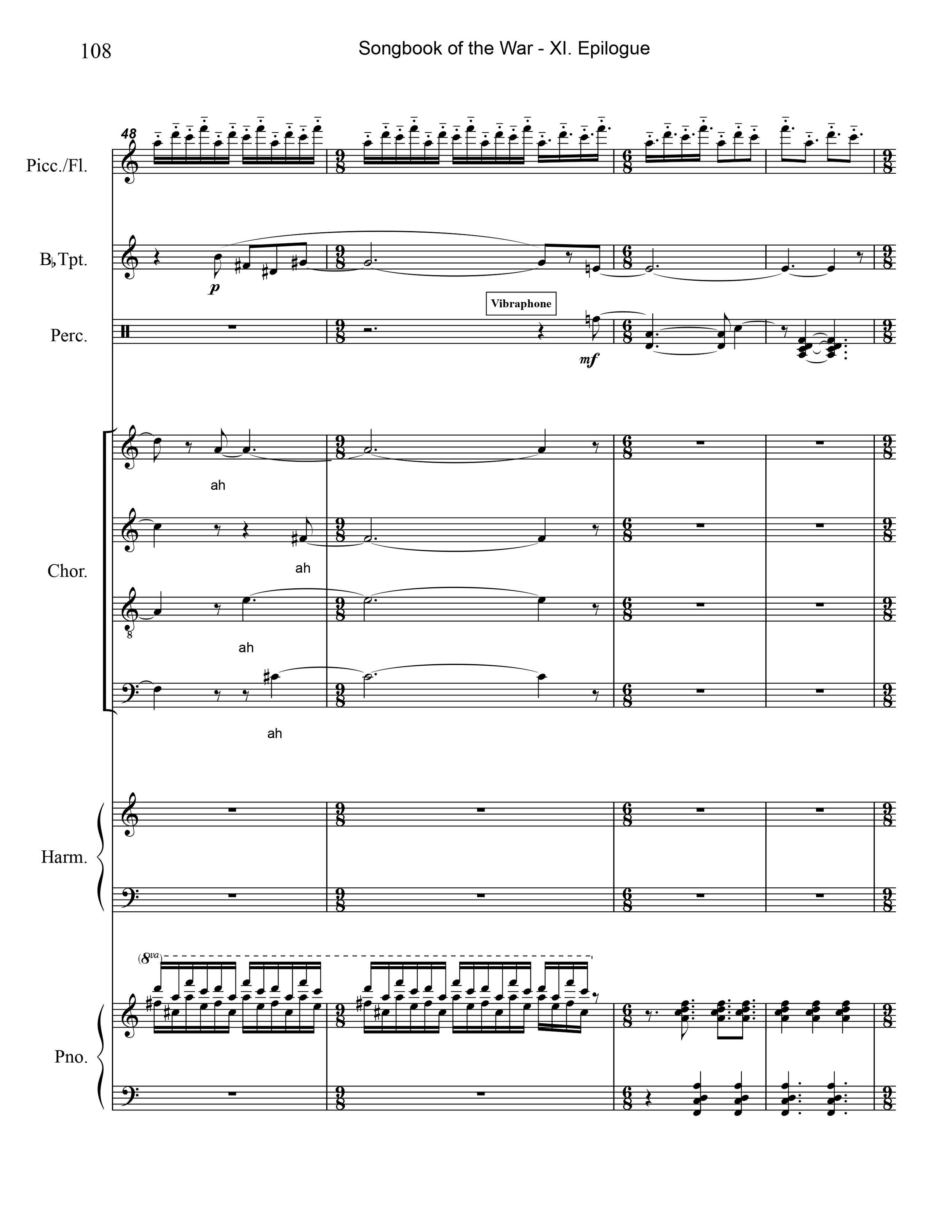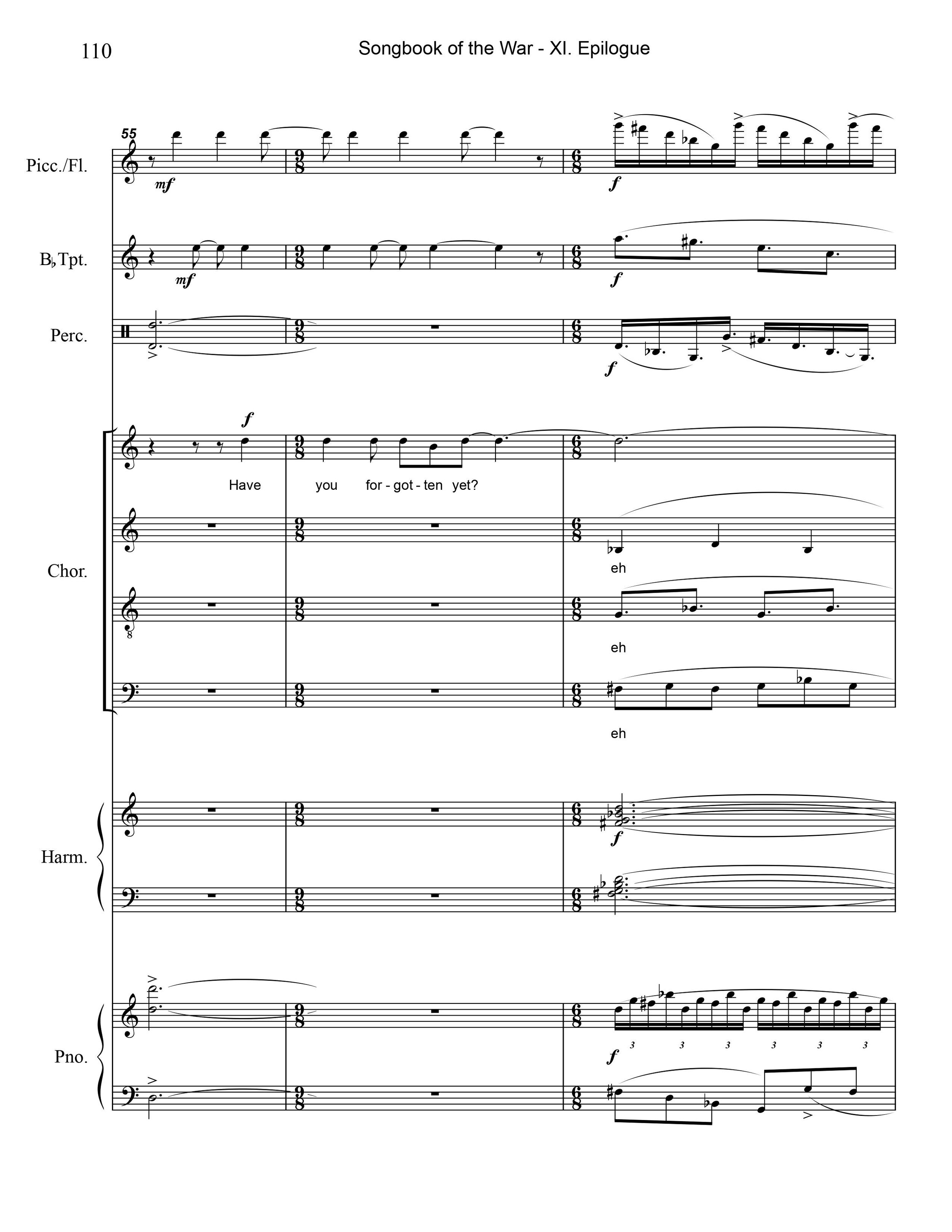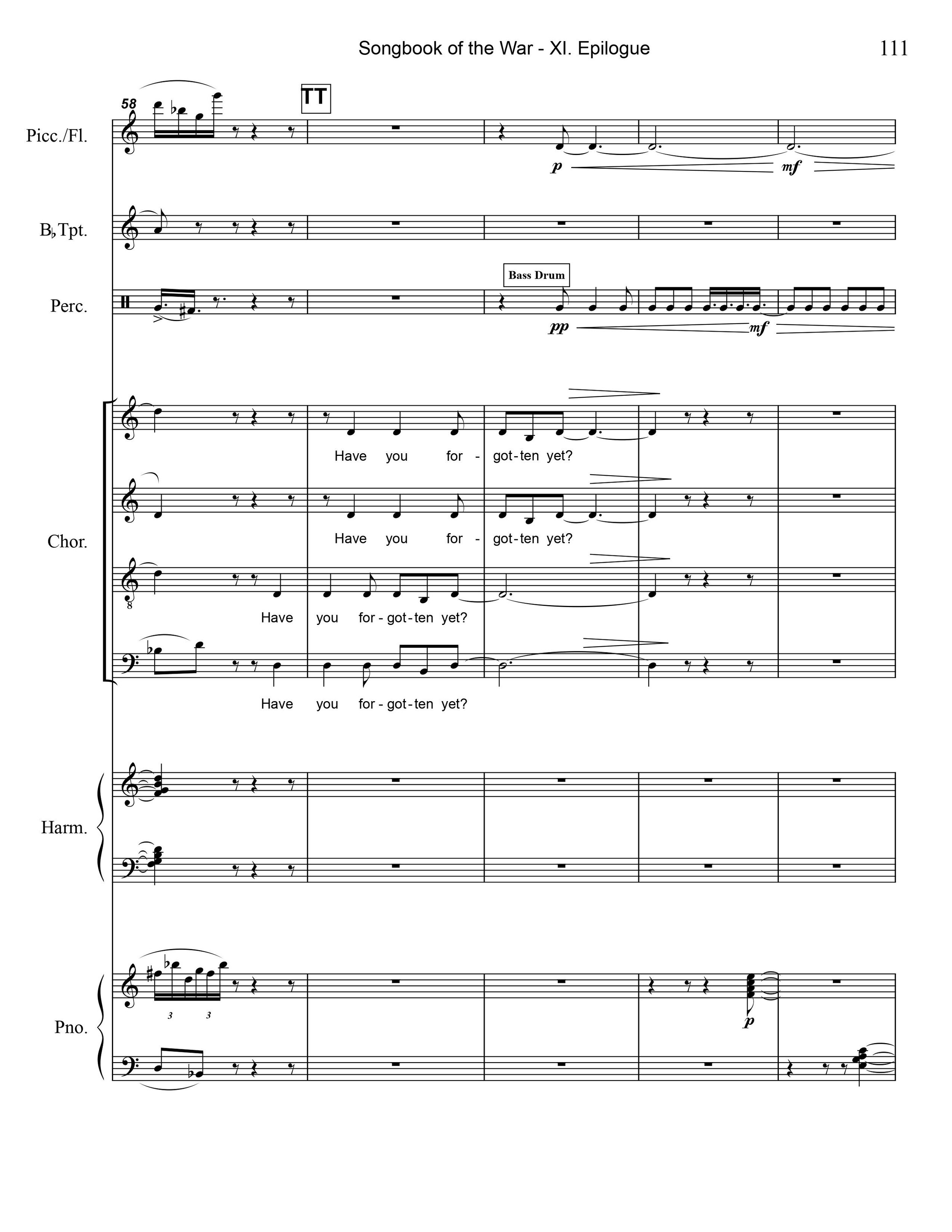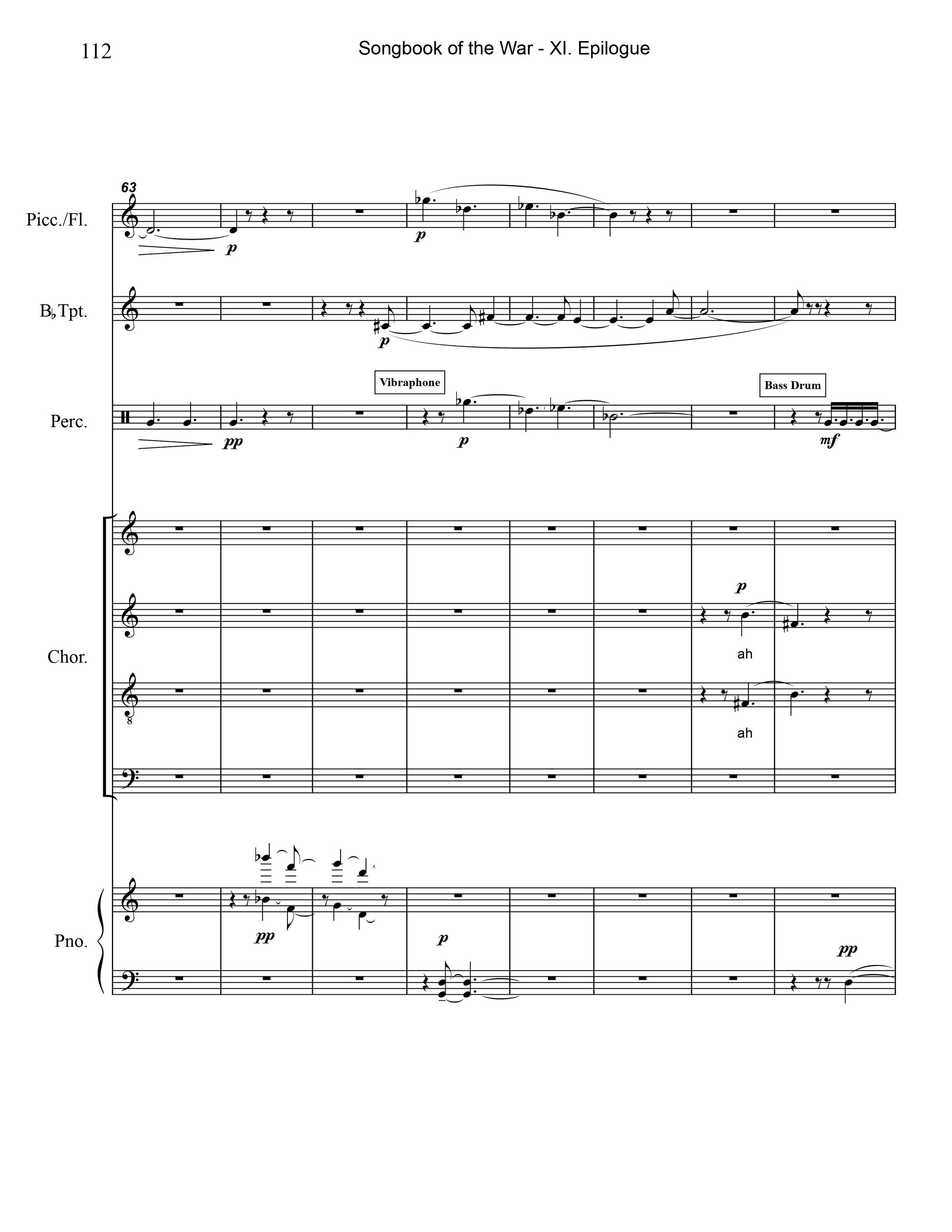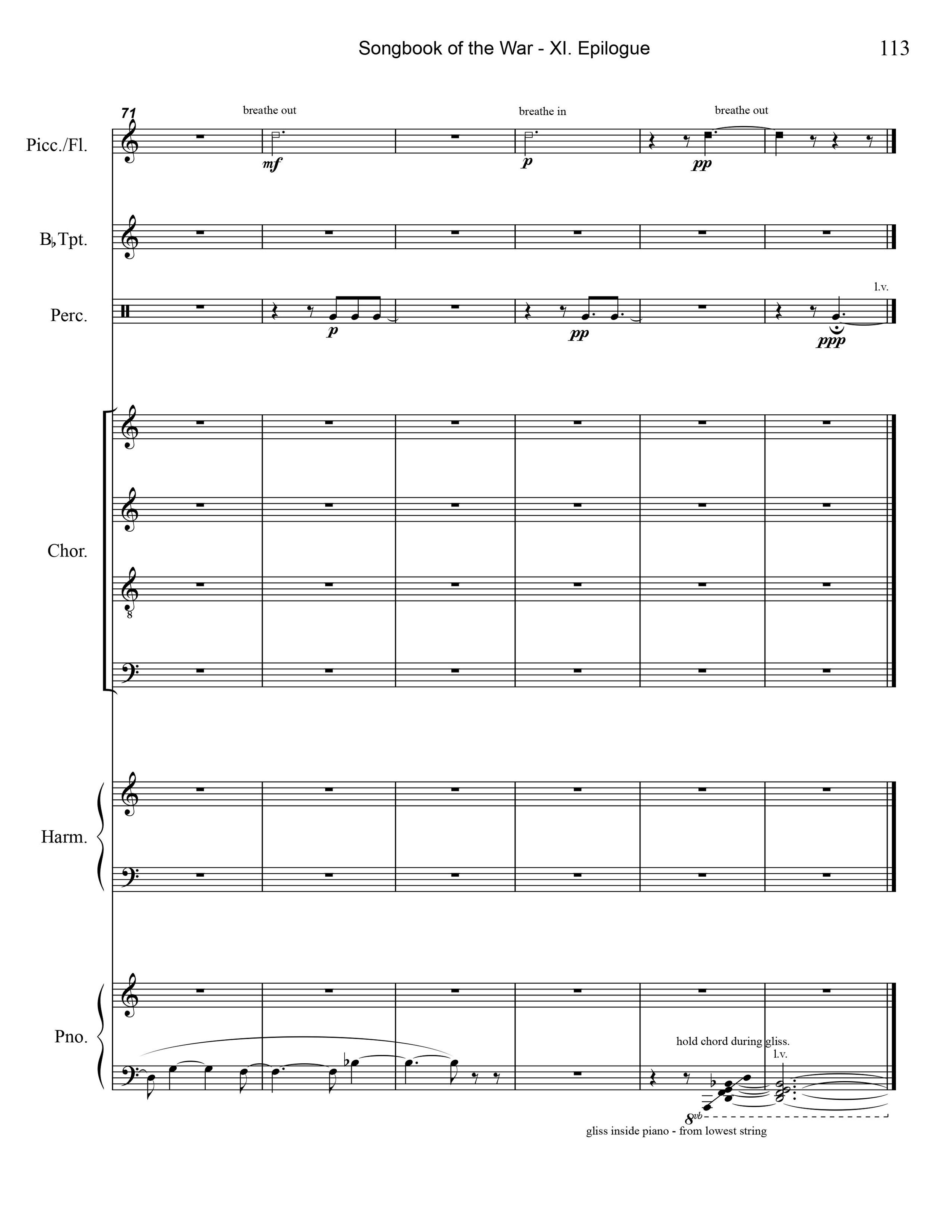Songbook of the War (2006/2012)
Duration: 45:00 minutes
Instrumentation: baritone, SATB vocal quartet or choir, flute/piccolo, trumpet, percussion, organ and piano
Premiere: May 5, 2006 at Mt. Auburn Presbyterian Church (Cincinnati, OH) by Keith Brown, baritone, Joelle Harvey, soprano, Michael Tomaz, alto, Michael Pegher, tenor, Michael Young, bass, Carlos Velez, flutes, Michael Woodin, trumpet, Scott Siler, percussion, Andrew Sheffield, organ, Michael Ippolito, piano
Notes:
War has always occupied a central place in our culture. Whether we read and reread the Iliad or glance at antiwar graffiti still wet on the walls, the unmistakable sameness of it all overcomes distance and time and we simply respond to the humanity and the pity of it all. While civilization everywhere is scarred by the destructive power of war, there is some comfort in these humble attempts to understand and memorialize loss and render some semblance of humanity out of raw destruction. As Wilfred Owen, another soldier-poet said, “My subject is War, and the pity of War. The Poetry is in the pity.”
In 2005, when I began to look at Siegfried Sassoon’s poetry, I was struck by the similarities between war-hungry Britain at the beginning of World War I and the flag-waving patriotism of America as we began our second war in as many years. I was moved by Sassoon’s own disillusionment, as his poetry moved from themes of triumph and glory to the horrors and grim realities of trench warfare, and by the biting contempt Sassoon had for cheering crowds back home, who knew nothing of the soldiers’ experiences. While I shared Sassoon’s anger and frustration, I also felt strangely reassured by his bleak poetry; it documented not only the shared experience of the war itself, but also the pessimism and disillusionment that inevitably comes with it.
My Songbook of the War is structured like a memoir, beginning with the “Aftermath” of the war and a question: “Have you forgotten yet?” After the nervous, yearning first song, the chorus, representing the home front, responds with a patriotic poem Sassoon wrote shortly after enlisting. The response of the chorus begins a dialectic between the embittered solo voice and society at large. Throughout the following songs, the chorus answers the soloist’s accusations and pleas with snippets of Anglican Church hymns and marching music. The turning point occurs in “Hero” when the chorus is finally sympathetic to the pity of war. As the soloist descends into cynicism and madness in the last few songs, the chorus is left to remember and hope that it will not happen again.


















































































